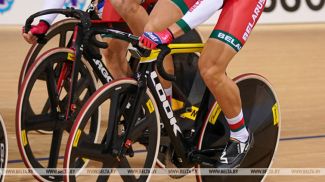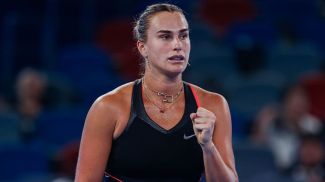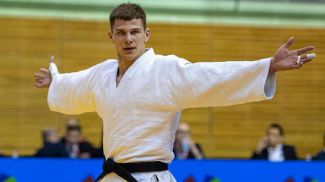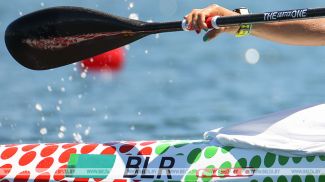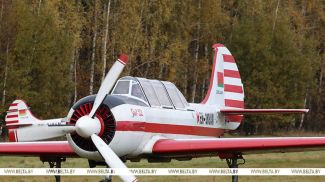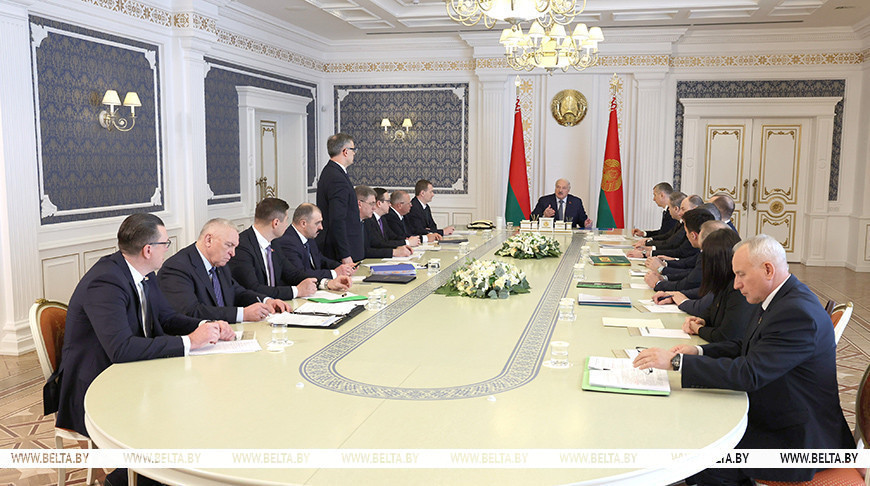
MINSK, 4 April (BelTA) – Following the meeting to discuss sports, Belarusian President Aleksandr Lukashenko supported the suggested proposals on improving the sports support system, Sports and Tourism Minister Sergei Kovalchuk told journalists, BelTA has learned.
“Everything has been upheld. All our approaches have been supported. We plan to develop a decree by 1 July. We already have a draft and appendices to it. We will submit them in a package and start working in line with the new principles on 1 January 2026, from the new financial year,” the minister said.

Sergei Kovalchuk noted that the principles of providing support to physical education and sports organizations laid down in Decree No. 191 are already a little outdated. The document was adopted back in 2013. “Approaches need to be updated. There must be a fair, rational, effective distribution of funds. We must count every kopek,” he noted.
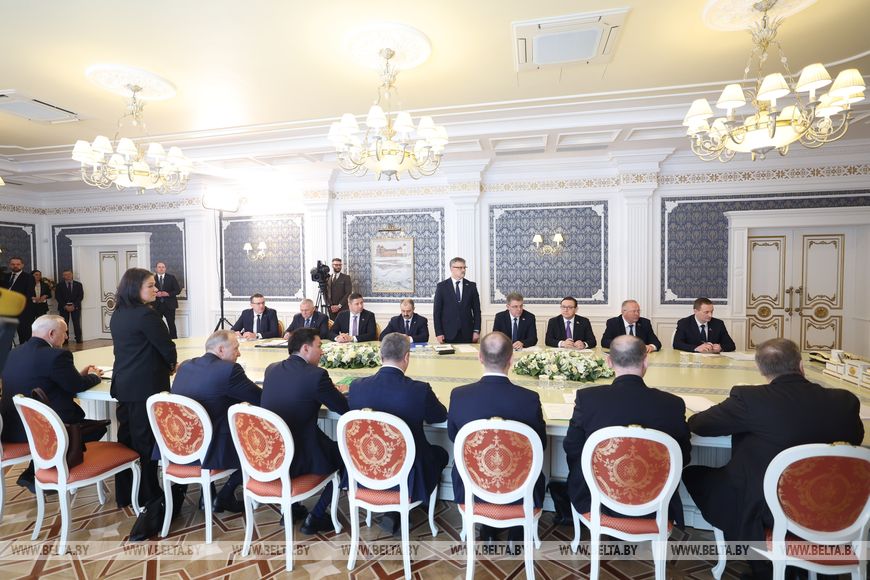
The minister pointed out that there are sports or clubs that are quite well financed by sponsors. Others do not have such funds. But performance of athletes does not always correlate with the amount of financing. “Sometimes it is very difficult to identify promising and talented athletes across various sports, especially at an early stage when they are still kids. Therefore, these funds must be distributed evenly and properly,” the minister said.
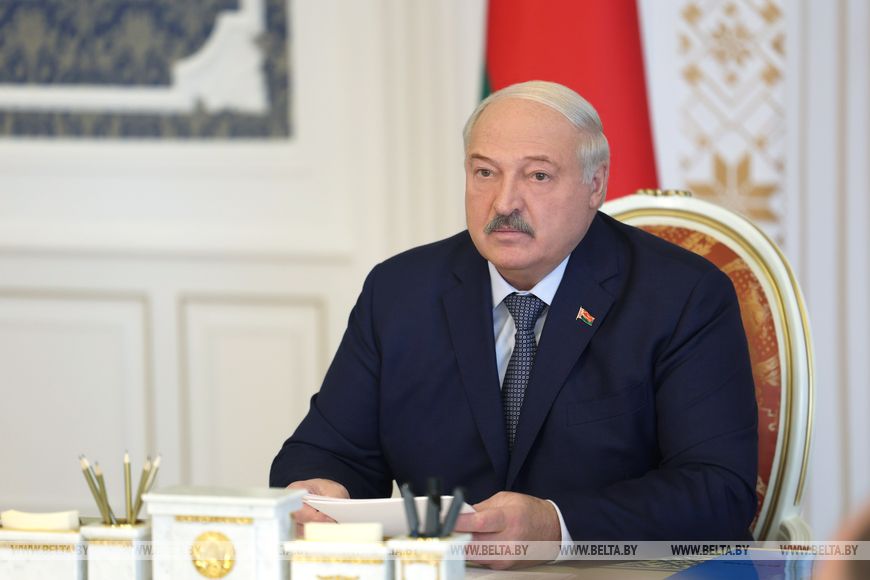
The second task is to create a proper oversight system to track how the funds are spent. According to the sports minister, at present budgetary funds are the main source of financing of sports; 80% of clubs are state-run and state-sponsored organizations. The remaining clubs need to find funding on their own or to work according to the standards developed by the government.
“The government, the Sports and Tourism Ministry, and the NOC must develop and finalize these approaches in the near future and submit a decree to the head of state. This document will set out all the guidelines for our work,” said Sergei Kovalchuk.
The proposals voiced by Sergei Kovalchuk concern the distribution of tax benefits and subsidies and funds received from state organizations. He also suggested improving the remuneration system in clubs, creating a common team prize fund and enabling clubs and federations to earn their own money, including through entrepreneurial activity.
It was proposed to retain the obligation of clubs to channel part of their income into children's and youth sports, with the exception of money received in the form of subsidies.
With a view to improving the remuneration system for clubs, the maximum size of the monthly team payroll based on subsidies will be determined depending on the type of sport. The minimum and maximum salary of each athlete, coach or specialist will also be established based on funding from various state sources. A team prize fund will be set up to reward good performance in championships.
As far as clubs participating in the KHL and other international competitions are concerned, if the costs of their participation in such competitions exceed the established threshold, the the excess will be covered, but the approval of the Presidium of the Council of Ministers is needed. Another proposal suggests providing support to clubs in non-team sports in accordance with the procedure determined by the Sports and Tourism Ministry in agreement with the Presidium of the Council of Ministers.
“The funds that were previously channeled to clubs and federations under Decree No. 191 will now [be transferred] to the budget. These are taxes on land and real estate. These funds will be used to support sports in the form of subsidies. Their spending will be controlled like the spending of budget funds. It will be clear how every kopek is spent. This also pertains to sponsorship funds, if sponsors are state organizations and enterprises,” Sergei Kovalchuk told journalists.
According to him, 50% of all funds received by all clubs in the country come from tax breaks on real estate and land in the city of Minsk. This has to do with tax rates in the capital city and regions. “It means that clubs [in Minsk] have better conditions from the start,” the minister remarked.
The same applies to clubs sponsored by large and stable enterprises that can afford to spend more money on sports, for example, Belaruskali. “If they [clubs] receive funds from a state enterprise, they will receive them according to budgetary norms, regardless of what kind of enterprise it is and regardless of the fact that it is companies' own funds. The same applies to other large enterprises in Belarus. They will allocate funds for sports evenly, equally throughout the country, to all clubs. The rest of the money should be earned [by clubs] on their own,” Sergei Kovalchuk said describing the scheme.
According to the minister, this imbalance is also the result of some other issues in Belarusian sports. For example, in football, maximum salaries in one regional team may be lower than minimum salaries in another. As a result, there are cases when a talented and promising football player is bought by a wealthier team and sits on the bench. “He does not play. He just enjoys the salary. His new salary is higher than what he could have earned [at his previous team]. He does not grow, does not improve. And this is the result of uneven financing and unequal opportunities of sponsors and clubs. We must look at regional sports today. They have fewer opportunities,” said Sergei Kovalchuk.
At the same time, there will be no one-size-fits-all policy. The goal is to create basic equal conditions, and the rest will be paid for the result. “If a team (we are talking about team sports) shows results in international competitions, it will be financed differently. It will have the opportunity to get additional funding. In football, for example, they receive additional funds. They already have better funding due to their results, due to the fact that they got there [to certain international competitions], than clubs that do not get to these competitions,” the minister said.
Clubs that perform well and win domestic championships always receive bonuses from the founders, at the regional level, and so on. “No one is left unappreciated. I know the salaries of football players, hockey players, athletes in all sports. The government pays well if athletes show good results,” Sergei Kovalchuk emphasized.





